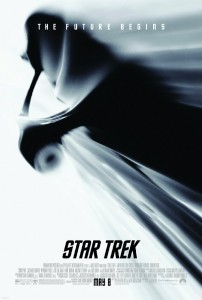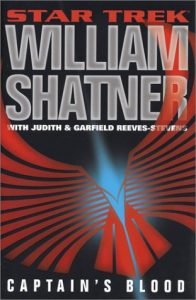As you may already be well aware, William Shatner wrote several entertaining-despite-their-self-indulgence novels about the future of James Kirk, who thanks to various authorial tricks is functionally immortal. You couldn’t take them as high drama, but except for the last one you could mostly like them. Anyway, another two and a half years have passed, which made me due for reading his Kirk prequel novel, Collision Course. The series it was evidently meant to be spawning is not in evidence anywhere, so I suppose that means the book didn’t do too well. I theorize that this is a result of the previous book’s badness rather than any particular flaw of the current one, because honestly it was exactly what you would expect it to be. Which is not to say it was without flaws: far from it. But there are enough of them out to have a pretty good idea of whether you like Shatner’s vision enough to make up for his excess, so nobody could really buy it not knowing exactly what they’d be getting, is my point.
As for said prequel, here’s what it does. It takes teenaged Jimmy Kirk and slightly less teenaged Spock and chronicles their first meeting and the start of their friendship. See, there’s a plot involving stolen dilithium, stolen Vulcan cultural artifacts, and an army of killer children, and they end up in the middle of it due to possible complicity from Spock’s father and Jimmy’s Academy girlfriend, non-respectively. Also, there is a link to Kodos the Executioner, so that’s nice for longtime fans. And as usual, he gets a lot of things right through his many years of time spent in Kirk’s head. The only thing he particularly gets wrong, in fact, is that it’s a little too perfect. All of the important protagonist and antagonist players are involved in the plot from start to finish. There’s no tightening web of intrigue, no choice to get involved. As a result, everything is too pat. Which didn’t make the storytelling less good, but it did constantly take me out of the story. Pity, as it was a quick, engaging read except for that.


 Along with some equestrian obsession I don’t fully understand and a successful re-invention of himself as a kitsch icon, Bill Shatner (yes,
Along with some equestrian obsession I don’t fully understand and a successful re-invention of himself as a kitsch icon, Bill Shatner (yes,